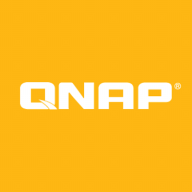

IBM Scale-out File System and QNAP NAS Storage are competing solutions in the data storage sector. IBM Scale-out File System has the upper hand due to its advanced data management capabilities, while QNAP offers cost-effective solutions with broader features suited for small to medium business needs.
Features: IBM Scale-out File System provides scalability, high performance, and integration features, making it suitable for complex enterprise-level data operations. QNAP NAS Storage delivers versatile connectivity, easy expansion, and multimedia-focused functionalities, appealing to diverse business requirements.
Ease of Deployment and Customer Service: IBM Scale-out File System is deployed within enterprise infrastructures and emphasizes robust service. QNAP NAS Storage offers a straightforward setup experience with comprehensive customer service for small to medium businesses, providing flexible scaling and customer-friendly assistance.
Pricing and ROI: IBM Scale-out File System involves a higher initial setup cost, balanced by significant long-term ROI through its high performance and scalability. QNAP NAS Storage presents a more attractive price point with a quicker return on investment, benefiting budget-conscious organizations focused on initial costs and feature variety.
QNAP NAS Storage offers advanced network-attached storage systems equipped with features to streamline data management for businesses of all sizes.
QNAP NAS Storage provides scalable, reliable solutions designed to handle data-intensive applications. It supports diverse deployment scenarios, enabling seamless integration into existing IT infrastructure. With robust security, efficient storage management, and comprehensive app ecosystems, QNAP meets the demands of various industries for storing, sharing, and protecting critical data.
What are the most important features of QNAP NAS Storage?QNAP NAS Storage is implemented across diverse industries such as healthcare, media production, and finance, effectively addressing specific data management and security requirements. In healthcare, it ensures secure patient data storage and quick retrieval. Media production benefits from high-speed data transfer and storage capacity for large multimedia files. In finance, it supports secure storage and efficient processing of sensitive financial data.
We monitor all NAS reviews to prevent fraudulent reviews and keep review quality high. We do not post reviews by company employees or direct competitors. We validate each review for authenticity via cross-reference with LinkedIn, and personal follow-up with the reviewer when necessary.